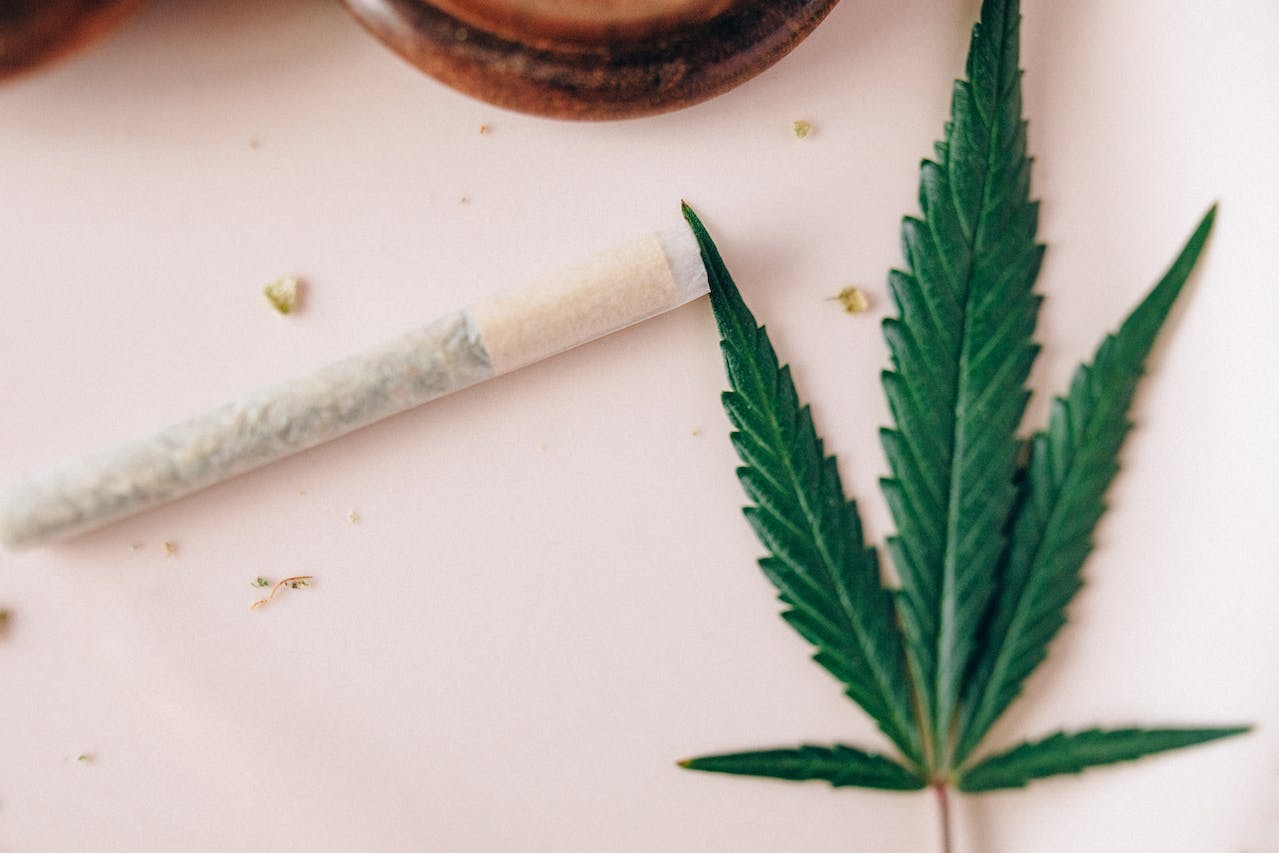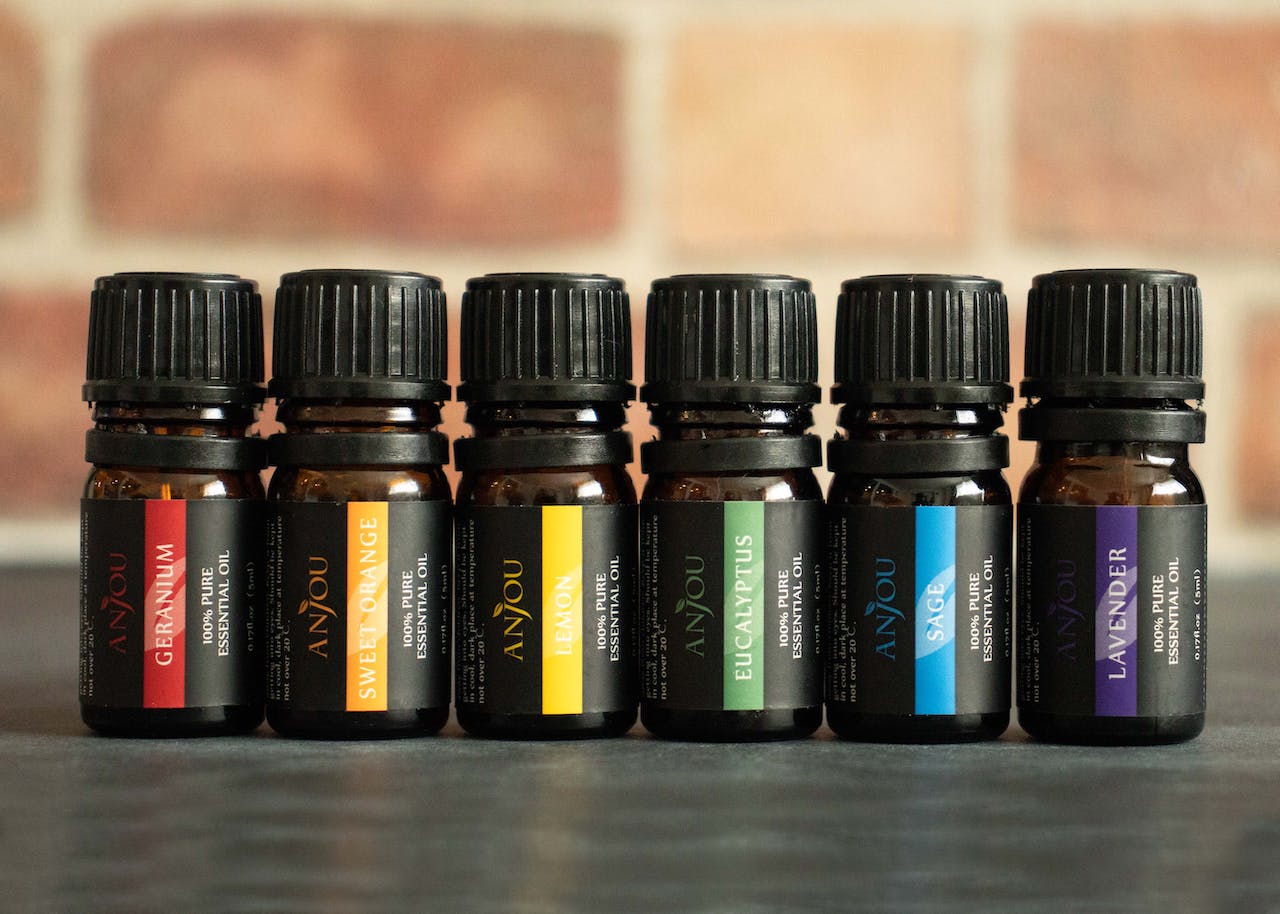How Long Does THC Oil Take To Kick In?
Understanding how long does THC oil take to kick in is essential for those seeking a precise and controlled experience. In this introductory guide, we will delve into the factors that influence the onset time of THC oil and provide insights on how to manage your expectations while waiting for THC oil to kick in.
Author:Suleman ShahReviewer:Han JuJan 09, 2024540 Shares89.9K Views

When it comes to the world of cannabis and its various consumption methods, one common question that lingers in the minds of both novice and experienced users is, "How long does THC oil take to kick in?" The timing of THC oil effects can vary from person to person and depends on several factors.
When given sublingually, it enters the circulation rapidly and is well tolerated. It may take anywhere from 30 minutes to 120 minutes for the THC oil to be absorbed entirely after being added to food like a smoothie or salad dressing.
This comprehensive guide will delve into the intricacies of THC oil absorption, metabolism, and its effects on the body to shed light on the enigmatic question: How long does THC oil take to kick in?
What Is THC Oil?
THC oil, short for tetrahydrocannabinol oil, is a cannabis extract that contains one of the plant's most well-known compounds: THC. THC is responsible for the psychoactive effects associated with marijuana. THC oil is a concentrated form of this compound, and it is used for a variety of purposes, including both medicinal and recreational use.
The Extraction Process
THC oil is typically produced through a process known as extraction. This method involves removing the desirable compounds from the cannabis plant and concentrating them into an oil form. The two most common methods of extraction used for THC oil are.
Solvent-Based Extraction
In solvent-based extraction, a solvent, such as ethanol or butane, is used to dissolve the THC and other desired compounds from the cannabis plant. Once the solvent has extracted the compounds, it is evaporated, leaving behind a highly concentrated THC oil. This method is efficient but requires careful handling due to the flammability of particular solvents.
CO2 Extraction
CO2 extraction is a more advanced and safer method. It uses pressurized carbon dioxide to extract THC and other cannabinoids from the cannabis plant. The advantage of this technique is that it allows for precise control of temperature and pressure, resulting in a cleaner and more consistent product.
Different Types Of THC Oil
THC oil can take various forms, each with its own unique properties. Some of the common types of THC oil include:
Distillate
THC distillate is one of the purest forms of THC oil available. It is created by using a fractional distillation process to isolate and refine the THC compound. The end product is often over 90% pure THC and is typically tasteless and odorless. Distillate is a versatile option used in products like vape cartridges, edibles, and tinctures.
Full-Spectrum Oil
Full-spectrum THC oil contains not only THC but also other cannabinoids, terpenes, and compounds found in the cannabis plant. This combination of compounds can create what is known as the "entourage effect," where the different components work together to produce a unique and potentially more therapeutic experience.
Broad-Spectrum Oil
Similar to full-spectrum oil, broad-spectrum THC oil contains multiple cannabinoids and terpenes, but it is often processed to remove or reduce the presence of THC. This is an ideal choice for individuals who want to benefit from the entourage effect without the psychoactive effects of THC.
What’s The Difference Between CBD Oil And THC Oil?
Cannabinoids like THC and CBDcan be isolated from cannabis. Cannabinoids are a class of compounds initially identified in the cannabis plant that are capable of being incorporated into the human body. Although both CBD and THC are cannabinoids, they are often treated differently by the law and are used for different reasons.
THC Meaning And CBD
The chemical delta-9-tetrahydrocannabinol (THC) is also present in cannabis and hemp, thus the abbreviation. 'THC' is an abbreviation for tetrahydrocannabinol, which is the chemical component of cannabis that gives it its common name. There are various types of THC, such as delta 8 THC, which is less potent than delta 9. But THC is used as a catchall phrase, which simplifies things.
Cannabidiol, or CBD for short, is a supplement component that has seen meteoric growth in popularity over the last few years. CBD products, including oils, balms, and edibles, make extensive use of this element. As demand rises and regulations tighten, Global Industry Insights predicts that the CBD industry will grow to more than $1 billion by 2027.
THC Oil Vs. CBD Oil
THC oil is most well-known for producing the "stoned" feeling and paranoia often associated with cannabis. However, CBD does not have the same side effects.
You cannot get high off of CBD oil. If you've done your homework on CBD, you'll know to seek oils that specify the percentage of CBD they contain. Our recommendation would be to avoid looking for phrases like 'cannabis oil' or 'hemp oil' because it just complicates things.
Given CBD's current popularity, it's safe to assume that any reference to cannabis or hemp oil really refers to CBD oil. THC oil, on the other hand, is frequently lumped in with cannabis oil despite the fact that it is not what most people are searching for.
Does CBD Contain THC?
Since CBD and THC are two very different chemicals, they can't coexist. CBD oils, balms, and other items may also contain trace amounts of THC. However, if they are to be marketed legally, CBD oils in the UK must be free of THC. For example, Vitality CBD assures 0.0% THC in all CBD products. Third-party labs have verified this, and the results of their tests on CBD are available online.
How To Use THC Oil?
Most THC oil is designed for usage in electronic cigarette cartridges. Thicker THC oils, like RSO oil, are ideal for usage with a dab rig because they can be dripped onto a heated nail with more precision.
THC oil users of all levels are constantly debating whether vapingor dabbing is better. Vapes provide you with a great lot of ease in utilizing your oil. A prefilled pen or cartridge is available for your convenience.
You may become more accurate with the quantity of oil you drop onto your heated nail when you dab using a rig. In addition, some users claim that the benefits they experience while dabbing are superior.
Can You Ingest THC Oil?
Although sublingual (under the tongue) doses might take up to an hour to take effect, the benefits of THC oil are often felt within 15 to 30 minutes after inhalation. The full effects of cannabis oil, like those of any edible form of the drug, may not be felt for up to an hour after consumption.
How To Cook With THC Oil?
While experimenting with THC-infused concoctions may be a lot of fun, it's important to remember not to overdo it. When deciding how much THC oil to add to a meal, take into account the number of servings you want to make.
Let's imagine you're making brownies, and you want to use some of the oil in them. When finished, the recipe will provide ten servings. Take into account the desired dose of THC per brownie, for example, 10mg. This means that 100mg of THC is required for the whole recipe.
Factors Affecting Onset Time Of THC
The onset time of THC, or tetrahydrocannabinol, is a critical aspect of the cannabis experience. It refers to the duration between consuming THC and when the user begins to feel its effects. This time can vary significantly between individuals and depends on a variety of factors.
Method Of Consumption
The way you consume THC plays a pivotal role in determining the onset time. Different methods of consumption have varying rates of absorption, leading to different timings for the onset of effects.
Inhalation
Inhaling THC, typically through smoking or vaping, is one of the quickest ways to feel its effects. The reason is that the THC bypasses the digestive system and enters the bloodstream directly through the lungs. Users often report feeling the effects within minutes, making inhalation the preferred choice for those seeking rapid relief.
Oral Ingestion
On the other hand, when you consume THC orally, such as in the form of edibles or tinctures, the onset time is typically longer. This is because the THC must travel through the digestive system, where it undergoes metabolism in the liver before entering the bloodstream. It can take anywhere from 30 minutes to two hours or more for users to start feeling the effects, which makes oral ingestion a method requiring more patience.
Dosage
The amount of THC you consume significantly influences the onset time. Higher doses often lead to faster and more intense effects, while lower doses may require a longer time to kick in. Individuals new to THC are encouraged to start with smaller doses and gradually increase to avoid overwhelming experiences.
Individual Variation
Individual factors, including your metabolism, tolerance, and overall health, play a crucial role in determining the onset time of THC.
Metabolism
Metabolism is the process by which your body breaks down and processes substances. Individuals with faster metabolisms tend to absorb and feel the effects of THC more rapidly. On the other hand, those with slower metabolisms may require more time to experience the effects.
Tolerance
Tolerance to THC develops over time with regular use. If you have a high tolerance, it may take more THC to achieve the same effects, which can lead to a faster onset time. Conversely, individuals with lower tolerance may feel the effects more quickly with lower doses.
THC Concentration
The concentration of THC in the product you're using is a significant factor influencing the onset time. More concentrated products, such as THC distillate, can lead to quicker and more intense effects. Conversely, products with lower THC concentrations will take longer to produce noticeable effects.
Empty Vs. Full Stomach
Whether you consume THC on an empty or full stomach can also impact the onset time. Eating THC-containing products on an empty stomach may result in faster effects as there is less interference from other foods. In contrast, consuming THC after a meal may slow down the onset as the body has to process the THC alongside other nutrients.
Setting And Expectation
Your surroundings and mindset can influence your perception of the onset time. If you're in a relaxed and familiar setting, you may notice the effects more readily. However, in a new or anxious environment, you might be more focused on the time and perceive the onset as slower.
How Long Does THC Oil Take To Kick In - Average Onset Times
The onset time for THC oil, the concentrated form of the psychoactive compound found in cannabis, can vary significantly depending on several factors. It's crucial to understand these variables to have a better idea of what to expect when using THC oil.
Inhalation Methods
When it comes to inhalation methods like smoking or vaping THC oil, the onset time is relatively fast. Users often report feeling the effects within minutes, usually within 5 to 10 minutes after consumption. This rapid onset is because THC enters the bloodstream directly through the lungs, bypassing the digestive system. As a result, inhalation methods are preferred by those seeking quick relief, such as those dealing with pain or anxiety.
Oral Consumption
The onset period of THC oil in edibles, pills, or tinctures is much more extended. It might take 30 minutes to 2 hours or more for individuals to notice results. THC must transit through the digestive system and be processed in the liver before entering the circulation, which delays it. Due to this diversity in start time, oral THC administration should be done slowly to prevent overconsumption.
Sublingual Consumption
Sublingual consumption, which involves placing THC oil or tinctures under the tongue, falls between inhalation and oral ingestion in termsof onset time. The effects are usually felt within 15 to 45 minutes. This method allows for faster absorption through the mucous membranes under the tongue, but it still involves some degree of digestive processing.
Tips For Managing Onset Time
Managing the onset time of THC oil can be a crucial aspect of your cannabis experience. Depending on your preferences and circumstances, you might want the effects to kick in faster or slower. Fortunately, there are several strategies you can employ to have better control over the onset time.
Choose The Right Consumption Method
The onset time depends on how you consume THC oil. For fast results, try vaping or smoking. For a gradual onset, use oral ingestion like capsules or edibles. Sublingual treatments, such as tinctures beneath the tongue, provide effects between inhalation and oral intake.
Start With A Low Dose
One of the most effective ways to manage the onset time is to start with a low dose. Lower doses take longer to produce effects, which can be beneficial if you're new to THC or want to ensure a milder experience. By beginning with a small amount, you can avoid the risk of overwhelming effects while still being able to increase the dose gradually if needed.
Pay Attention To Your Metabolism
The start of THC effects depends on metabolism. Fast metabolisms provide faster impacts. In contrast, a slower metabolism may delay commencement. You can better plan your THC usage by understanding your metabolism. Dosage adjustments must also take metabolism into account.
Be Mindful Of Tolerance
Tolerance to THC can develop over time with regular use. If you've been using THC for an extended period, you may find that it takes more of the substance to achieve the same effects. This can lead to a quicker onset time, especially when using larger doses. To manage tolerance, consider taking breaks from THC or reducing your consumption.
Use Products With Known THC Concentrations
Your product's THC content might greatly alter onset time. Higher THC products provide quicker and stronger effects. Choose items with known THC concentrations and read labels to adjust onset time. You may choose a product that matches your experience this way.
Consider The Entourage Effect
Cannabis contains various compounds, including cannabinoids and terpenes, which can interact with THC. The presence and combination of these compounds create what's known as the "entourage effect." This phenomenon can influence the onset time and overall experience. Be mindful of this when choosing THC products and consider the desired entourage effect for your specific needs.
Manage Your Stomach Contents
Your stomach's contents can also influence the onset time of THC. Consuming THC oil on an empty stomach may lead to quicker effects as there is less interference from other foods. In contrast, consuming THC oil after a meal can slow down the onset as the body has to process the THC alongside other nutrients. Consider your eating schedule and how it aligns with your desired onset time.
How Long Does THC Oil Take To Kick In - FAQs
Can My Hydration Levels Influence The Timing Of THC Oil Onset?
Yes, dehydration can potentially lead to a slower onset time for THC effects.
Is The Onset Time For THC Oil Affected By The Strain Or Type Of Cannabis Used?
Yes, different strains and types of cannabis may have varying onset times due to their unique cannabinoid and terpene profiles.
What Role Does Individual Body Temperature Play In The Onset Time Of THC Oil?
Body temperature can impact onset time; higher body temperatures might lead to faster effects.
Can Practicing Deep Breathing Techniques Speed Up The Onset Of THC Oil Effects?
Deep breathing exercises help you feel the effects sooner by increasing blood circulation.
Does The Time Of Day At Which I Consume THC Oil Influence The Onset Time?
Yes, consuming THC oil in the morning may lead to a faster onset compared to nighttime consumption due to differences in circadian rhythms.
Conclusion
The factors that affect how long does thc oil take to kick in are crucial for users seeking a tailored and predictable cannabis experience. By considering variables such as the method of consumption, individual factors like metabolism and tolerance, THC concentration, and other compounds present, individuals can better manage the onset time to meet their specific needs.
Whether one prefers a fast-acting or slow-acting THC experience, awareness of these factors can lead to a more informed and enjoyable journey with THC oil.

Suleman Shah
Author
Suleman Shah is a researcher and freelance writer. As a researcher, he has worked with MNS University of Agriculture, Multan (Pakistan) and Texas A & M University (USA). He regularly writes science articles and blogs for science news website immersse.com and open access publishers OA Publishing London and Scientific Times. He loves to keep himself updated on scientific developments and convert these developments into everyday language to update the readers about the developments in the scientific era. His primary research focus is Plant sciences, and he contributed to this field by publishing his research in scientific journals and presenting his work at many Conferences.
Shah graduated from the University of Agriculture Faisalabad (Pakistan) and started his professional carrier with Jaffer Agro Services and later with the Agriculture Department of the Government of Pakistan. His research interest compelled and attracted him to proceed with his carrier in Plant sciences research. So, he started his Ph.D. in Soil Science at MNS University of Agriculture Multan (Pakistan). Later, he started working as a visiting scholar with Texas A&M University (USA).
Shah’s experience with big Open Excess publishers like Springers, Frontiers, MDPI, etc., testified to his belief in Open Access as a barrier-removing mechanism between researchers and the readers of their research. Shah believes that Open Access is revolutionizing the publication process and benefitting research in all fields.

Han Ju
Reviewer
Hello! I'm Han Ju, the heart behind World Wide Journals. My life is a unique tapestry woven from the threads of news, spirituality, and science, enriched by melodies from my guitar. Raised amidst tales of the ancient and the arcane, I developed a keen eye for the stories that truly matter. Through my work, I seek to bridge the seen with the unseen, marrying the rigor of science with the depth of spirituality.
Each article at World Wide Journals is a piece of this ongoing quest, blending analysis with personal reflection. Whether exploring quantum frontiers or strumming chords under the stars, my aim is to inspire and provoke thought, inviting you into a world where every discovery is a note in the grand symphony of existence.
Welcome aboard this journey of insight and exploration, where curiosity leads and music guides.
Latest Articles
Popular Articles




